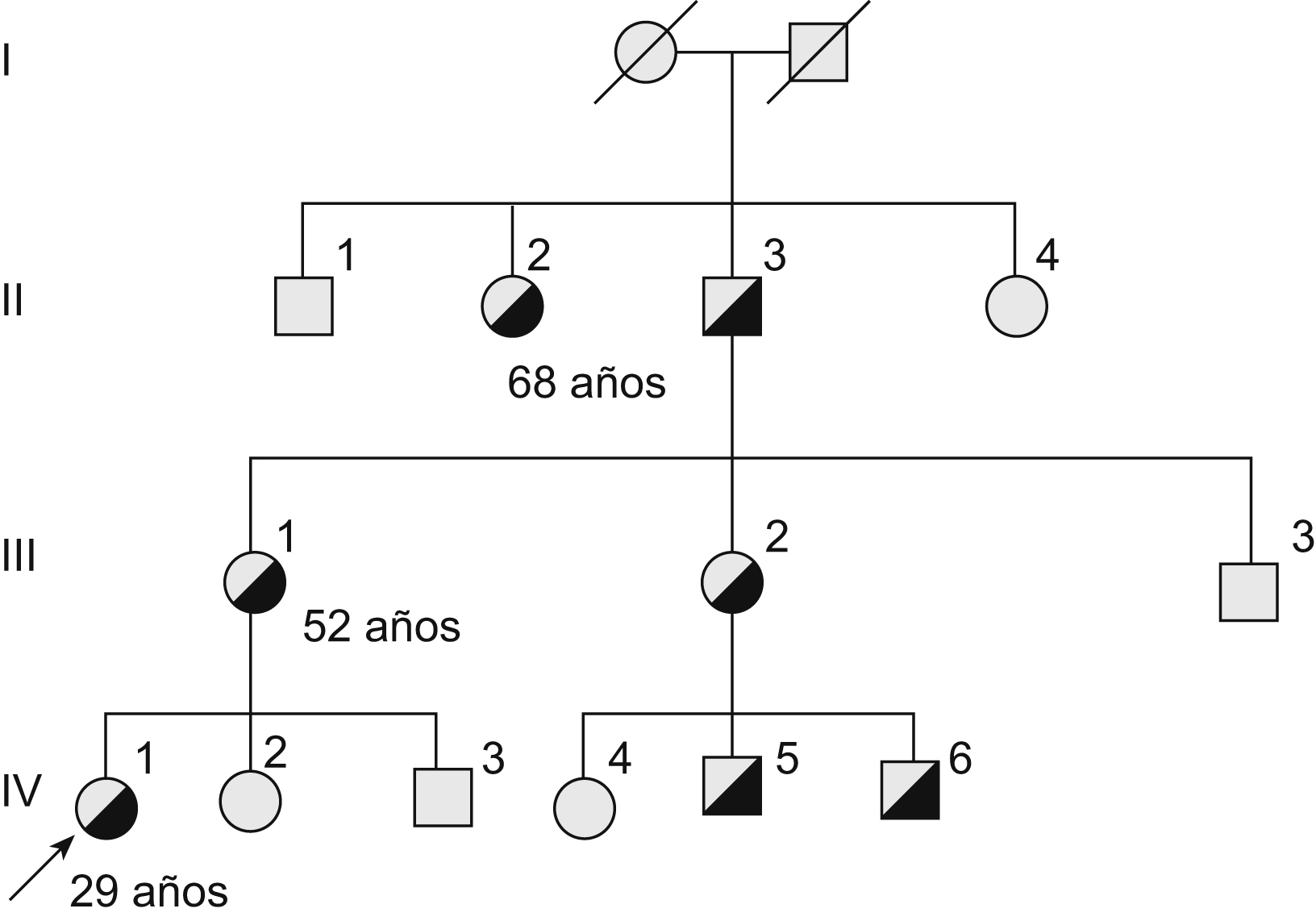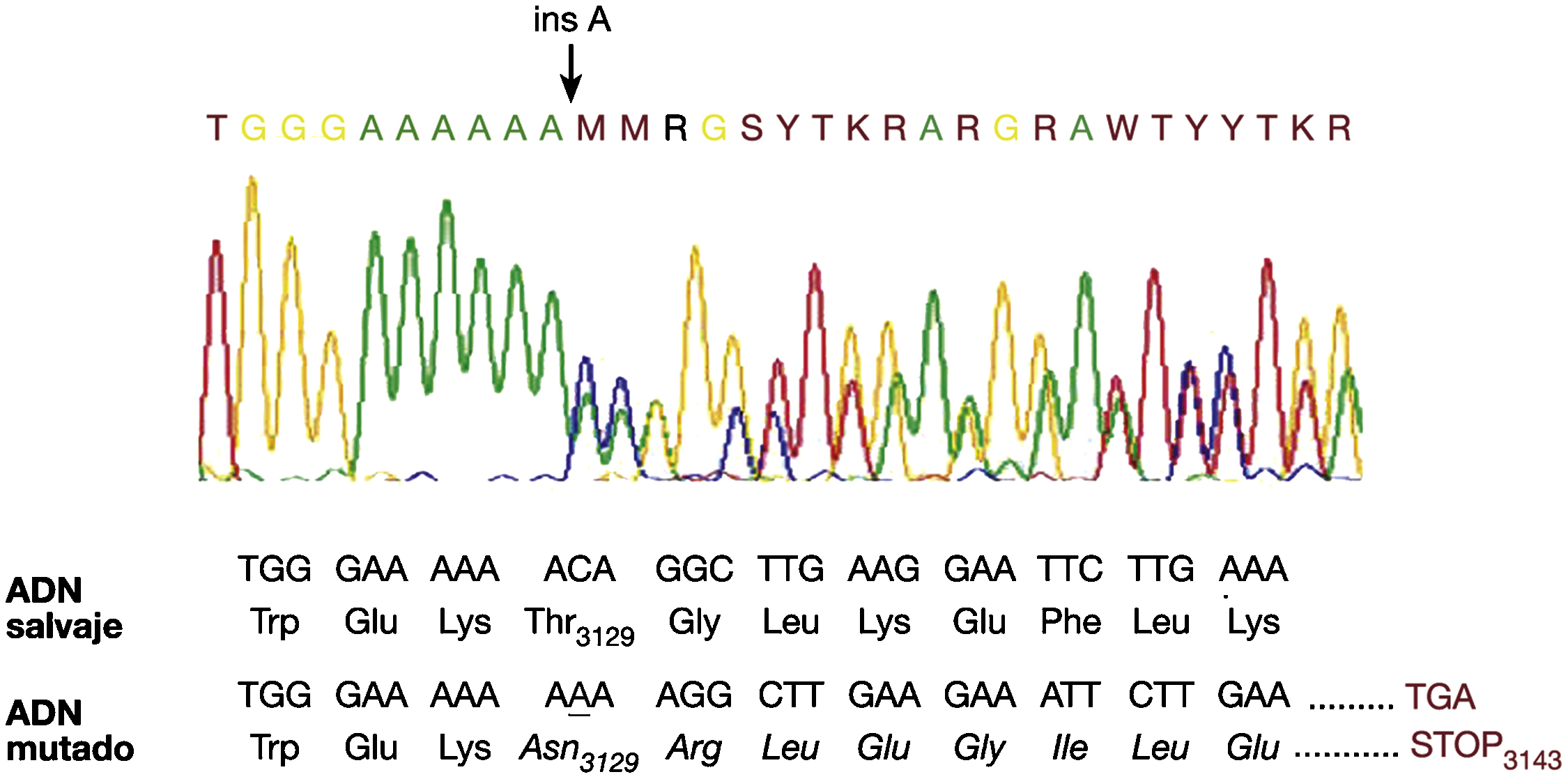Journal Information
Vol. 133. Issue 2.
Pages 57-60 (June 2009)
Vol. 133. Issue 2.
Pages 57-60 (June 2009)
Hipobetalipoproteinemia familiar: caracterización clínica de una nueva mutación en el gen de la apolipoproteína B
Familial hypobetalipoproteinemia: Clinical characterization of a new mutation in the APOB gene
Visits
6816
This item has received
Article information
Fundamento y objetivoLa hipobetalipoproteinemia familiar (HBF) es un trastorno genético debido generalmente a mutaciones del gen APOB. Se han descrito unas 60 mutaciones diferentes. Se presenta una familia española con HBF y una nueva mutación del gen APOB. Pacientes y métodoEn el sujeto probando se realizó un estudio analítico, morfológico y molecular mediante la secuenciación del gen APOB, tanto en el probando como en 2 familiares afectados fenotípicamente. ResultadosMujer de 29 años con retraso mental moderado a grave, obesidad mórbida, hipocolesterolemia, hipertransaminasemia y esteatosis hepática. Hubo 6 familiares afectados fenotípicamente. El estudio genético confirmó una mutación (apolipoproteína B-69.27) en el gen APOB. Tanto el probando como la madre y una tía materna fueron heterocigotos para esta mutación. ConclusionesLa HBF tiene una expresión fenotípica muy variable que puede oscilar desde una enfermedad asintomática hasta un daño neurológico moderado a grave.
Palabras clave:
Hipobetalipoproteinemia familiar
Mutación
Gen APOB
Esteatosis hepática
Retraso psicomotor
Background and objetiveFamilial hypobetalipoproteinemia (FHB) is usually due to mutations in the APOB gene. Almost 60 different mutations have been reported. We report a Spanish family with FHB phenotype and a new mutation. Patient and methodsWe performed an analytical, localizing and molecular study of the APOB gene in the proband and in two relatives phenotypically affected. ResultsThe proband was a 32-year-old woman with moderate to severe mental retardation, morbid obesity, hypocholesterolemia, hypertransaminasemia, and hepatic steatosis. The familial phenotypic study was positive in other 6 relatives. The genetic study confirmed the presence of a novel mutation (apoB-69.27) in the APOB gene. The proband, her mother and one maternal great aunt were heterozygote for that mutation. ConclusionsFHB has a variable phenotypic expression that can range from oligosymptomatic disease to severe neurological damage.
Keywords:
Familial hypobetalipoproteinemia
Mutation
APOB gene
Hepatic steatosis
Psychomotor retardation
These are the options to access the full texts of the publication Medicina Clínica
Subscriber
Subscribe
Purchase
Contact
Phone for subscriptions and reporting of errors
From Monday to Friday from 9 a.m. to 6 p.m. (GMT + 1) except for the months of July and August which will be from 9 a.m. to 3 p.m.
Calls from Spain
932 415 960
Calls from outside Spain
+34 932 415 960
E-mail








